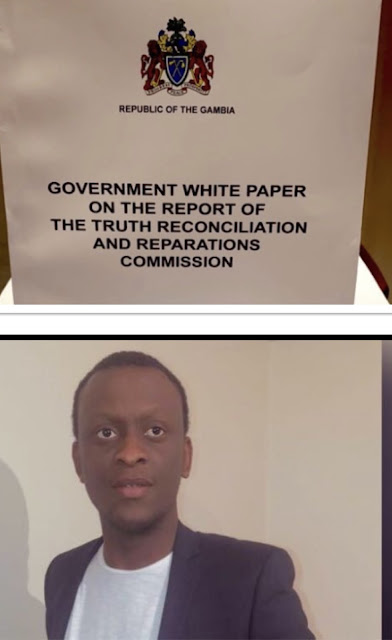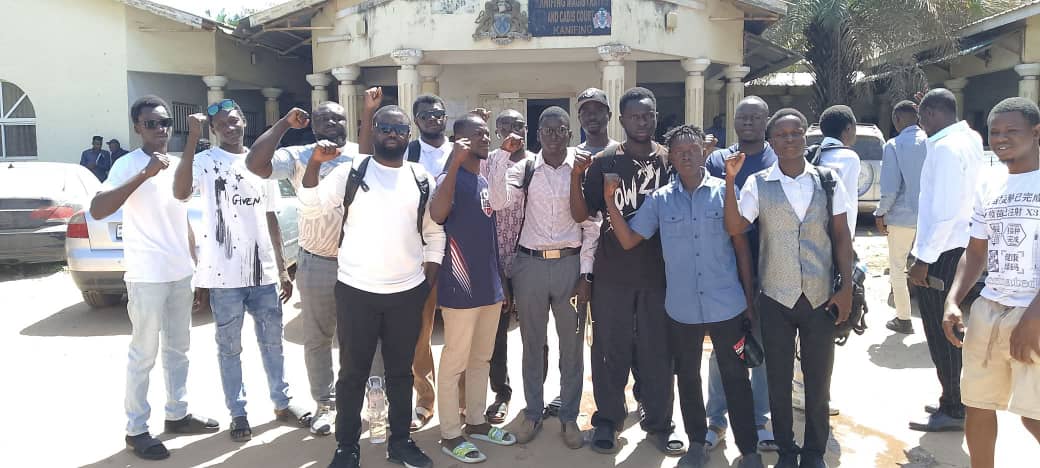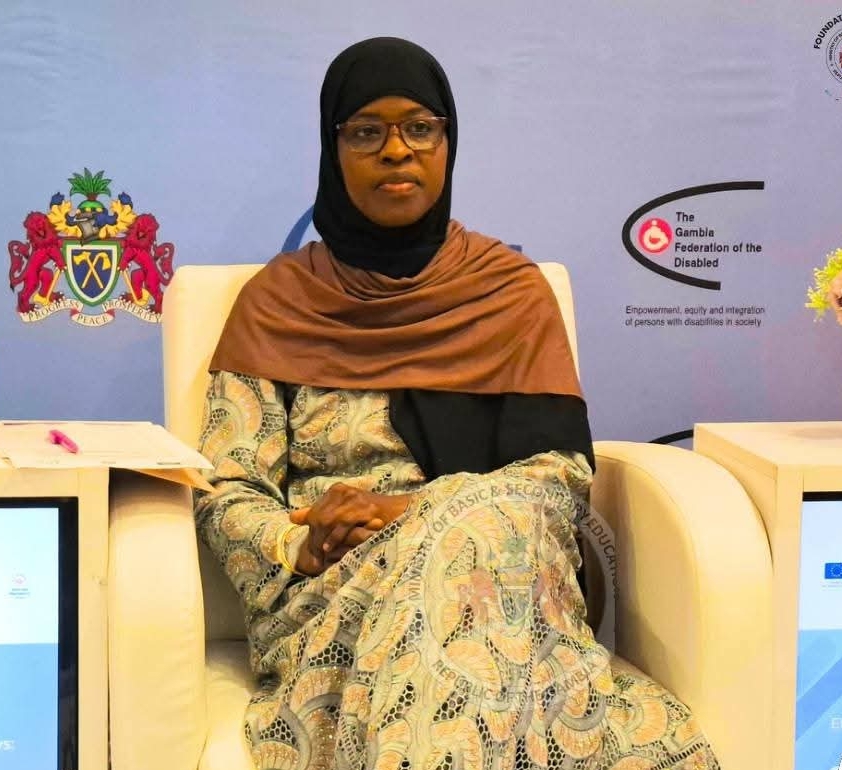By Pa Louis Sambou
Having gone through the White Paper, I cannot help but say that our transitional justice journey may not have been so chaotic and rocky had we had A-G Dawda Jallow in place from day one. I do however have a few concerns and observations regarding aspects of the White Paper (considering other public commentary I have come across):
My Concerns
1) Rejection of Recommendations Regarding NIA D.G Sowe: the reason advanced for rejecting recommendations regarding him is that his “tampering” of the evidence occurred on dates which are not within the TRRC’s mandate. (Like most things under the previous A-G, the TRRC Act was narrowly consulted on and poorly drafted — but upon discovery of the tampering, the TRRC ought to have liaised with the A-G to explore an appropriate amendment of the Act so that it brings into its remit, all unlawful conduct and omission which sought to frustrate or undermine its mandate regardless of when they occurred.)
D.G Sowe’s conduct was nonetheless criminal and adverse to the mandate given to the TRRC. Regardless of the time it occurred, tampering with evidence is a criminal conduct and a decision by the government to not hold him accountable for such serious conduct is certainly neither in the public interest nor in the interest of justice.
2) Failure to Accept Adverse Recommendations Regarding Ex IGP Yankuba Sonko: the reasons advanced for not upholding the TRRC’s recommendations are weak. If Sonko had evidence which he believes exonerates him, he should have shared it when he was invited to give his statement and when he testified. It is a bit suspicious using such as a reason to not uphold an adverse recommendation against him.
3) Legislating Against “hate speech”: There is no evidence that “hate speech” was responsible for any of the atrocities committed during the 22 years long dictatorship, and there is no evidence that existence of “hate speech” legislation would have prevented any of those atrocities occurring. Furthermore, if this “hate speech” recommendation is implemented, there is very high likelihood that it will undermine the TRRC recommendations for defamation and libel to be decriminalised so that they are matters addressed as civil disputes between individuals, as well as those recommendations as regards Theme 7 – Attacks on the Media which are very good ones by any democratic measure.
In a democratic state, incitement and threats are reasonable thresholds upon which belligerent speech becomes criminal conduct. This must remain so because what constitutes “hate speech” is very subjective and any such legislation will undoubtedly hamstring freedom of expression and create a slippery slope to very unpleasant and unintended consequences.
4) Remodelling the Supreme Islamic Council (SIC) under “Legal Framework” to “carry out regulatory” functions: all religious bodies in the country of which the SIC is one, are non-State entities for very good reason: the exercise of religion is voluntary and a private affair, not a public affair (mandated or sustained by the State or an instrument of the State whether physical or abstract). Unless these bodies remain private, none-State entities like every other NGO and voluntary organisation, the concept of “separation of State and religion” which requires reinforcement as recommended by the TRRC, will be undermined if not eroded and there will be high risk for conflict among religious bodies and/or between religious bodies and citizens. Furthermore, implementation of this recommendation (for the SIC or any religious body to be given a statutory mandate of whatsoever nature to “regulate” religious affairs or any issue of whatsoever nature) will breach section 25 of the Constitution and adversely blur the lines between institutions of the State and religious bodies.
I hope the government / A-G carefully reviews / revisits their manifested intentions as regards the above TRRC recommendations.
Observations and Public Commentary Regarding Aspects of the White Paper
5) Issue of Slain Soldiers During Farafenni Attacks: to my knowledge, no Coroner’s Inquest took place regarding these unlawful killings. This was a breach of the human rights of the slain Soldiers by the State and although it may have been an oversight rather than a deliberate omission in bad faith, this ought to have formed part of the TRRC’s inquiry. The government is therefore in my view right to highlight this as something which requires its attention and redress.
Unless I overlooked it, I did not come across the issue of the soldier murdered during the Kartong attacks for whom I do not recall a coroner’s inquest taking place and who was equally failed by the Gambian State. I hope his memory and family are equally included in the government’s plans regarding the subject matter.
6) Rejection of Recommendations Regarding Retd Lt. Col Sarr and the Nigerian Lawyers and Judges: Unless there were good reasons for not doing so, all those adversely mentioned (including Yaya Jammeh), ought to have been given an opportunity to address the allegations against them before the TRRC. In the absence of such, the door is left wide open for allegations of bias, unfairness etc. Had these refused or rejected an invitation to respond to allegations against them before the Commission, then the Commission would be perfectly entitled to draw an adverse inference (accept and held their refusal to respond or appear against them) upon their refusal. Otherwise, not granting these the opportunity to respond or address their allegations before the Commission was definitely an error.
In light of the above, the government is in my view not wrong in rejecting these recommendations for the reasons they advanced, although I would strongly disagree with their push-back against the TRRC’s reference of the term “mercenary judges” — as the TRRC did not coin this term but merely and correctly used it to reflect the conduct of these ‘judges’ as observed and experienced by the Gambian public and the witnesses and victims themselves.
7) Rejection of Recommendation of Amnesty for Ex Captain Sanna Sabally: given the central role he played particularly on 11th November 1994 and up to his incarceration, it’s not possible to grant him amnesty without undermining the prosecution of other subordinates whose atrocities were attributed to his illegal orders. Although the State may wish to use him as a prosecution witness as part of a mutually beneficial deal, it was grossly ill-advised of the TRRC to grant him premature amnesty which any responsible A-G or law officer will be justified to view unfavourably and any properly advised government duty-bound to reject. So,the government is absolutely right to reject Ex Captain Sana Sabally’s recommendation for amnesty.
8) Claims that the Act Does not Permit the Government to Reject any of the TRRC Recommendations: the government is not obliged to accept recommendations of any Commission under s.200 of the Constitution, as the TRRC Act is subordinate to the Constitution, it cannot trump any principle underpinned by the Constitution. Furthermore, the TRRC’s recommendations are advice from the Commission to the government and, as per s.231(4) of the Constitution, the government is not “required to act in accordance with the advice” of any advisor or advisory authority. So, whether morally right or not that is another issue, but the government’s rejection of recommendations enjoys very formidable degree of favour and support in law. Claims of unlawfulness are unfortunately not supported by any formidable legal authority capable of displacing the above-mentioned legal principles under the Constitution.
9) The Victims Reparations Bill: the level of reparations one is entitled should be determined by the detriment they suffered, the impact such detriment had (and continues to have) on them now and the future and, must take into account any financial loss suffered and financial costs incurred which are attributed to such victimhood, in line with the standard legal criteria for personal injury damages quantification. The quantification criteria and test must be objective, public,and transparent.
I hope the government consults widely on this and avoid a repetition of the avoidable mistakes of the Faraba Commission which simply plugged random compensation sums from the air without any rational logic to any of its recommended compensation figures or, the TRRC’s in-house reparation exercise which appeared very suspiciously subjective, bias, and inconsistent with grossly unfair outcomes.
10) Government’s Reference to “Prosecution Strategy”: unlike the agonising cavalier and shooting from the hip approach under the previous A-G who bungled almost every public business he was entrusted, this methodical and measured approach to public business is a breath of fresh air for a change. However, I hope financial reward for information etc. leading to the successful apprehension of suspects outside jurisdiction, will be an option to which the A-G and government will give some serious consideration.
Overall, the White Paper is a step in the right direction. However, the work remains incomplete until the White Paper is fully implemented with reparations and prosecutions commenced without any further delay.
Publisher’s Note
Views expressed herein are those of the author and do not necessarily represent the views of the publisher.
Want to be a contributing author? Please email opmail220@gmail.com






